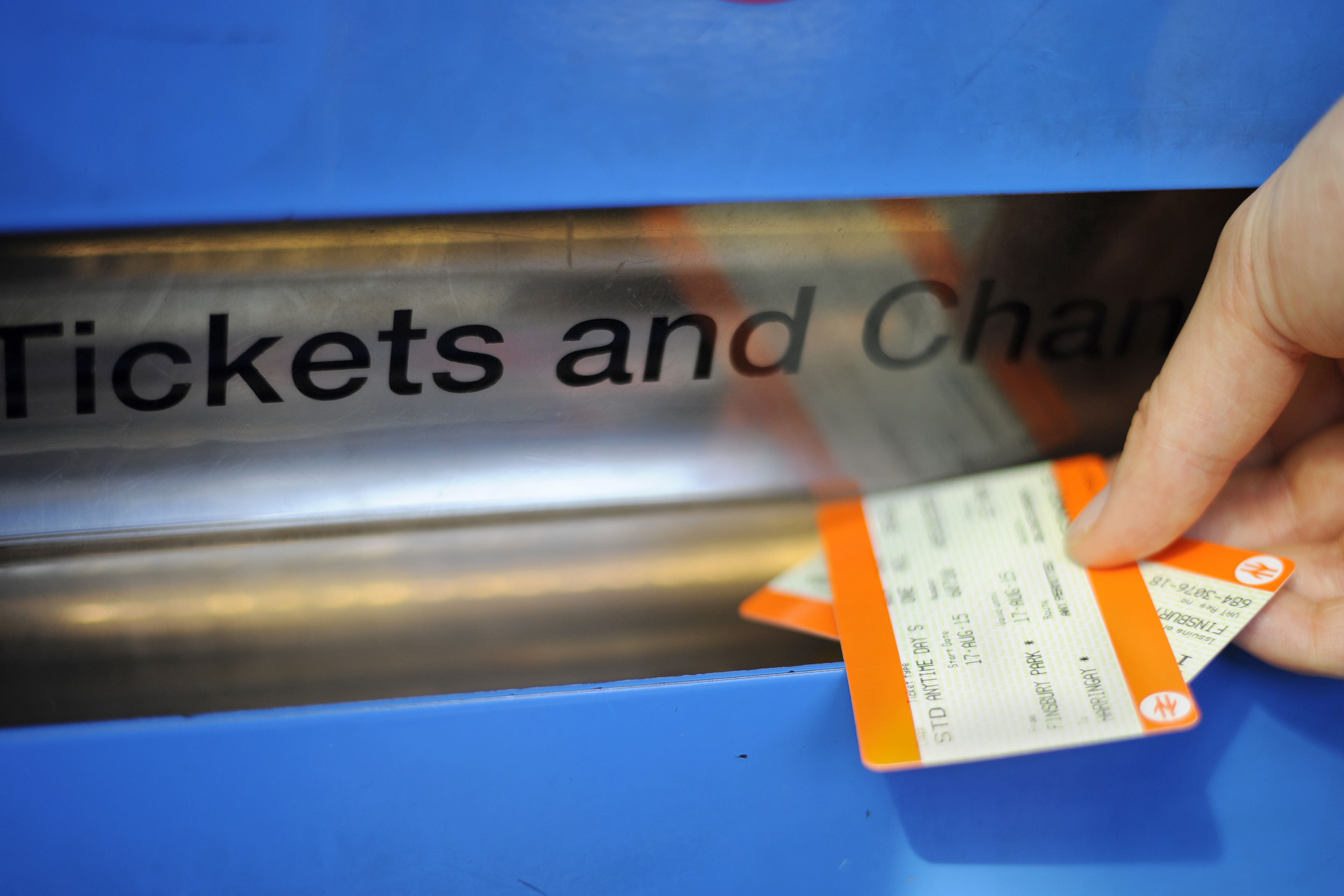Train fares increase again – find out how much your ticket will cost now
The hike in prices has been criticised given the ‘shocking state’ of rail services across the country
Your support helps us to tell the story
From reproductive rights to climate change to Big Tech, The Independent is on the ground when the story is developing. Whether it's investigating the financials of Elon Musk's pro-Trump PAC or producing our latest documentary, 'The A Word', which shines a light on the American women fighting for reproductive rights, we know how important it is to parse out the facts from the messaging.
At such a critical moment in US history, we need reporters on the ground. Your donation allows us to keep sending journalists to speak to both sides of the story.
The Independent is trusted by Americans across the entire political spectrum. And unlike many other quality news outlets, we choose not to lock Americans out of our reporting and analysis with paywalls. We believe quality journalism should be available to everyone, paid for by those who can afford it.
Your support makes all the difference.Train fares are due to rise by nearly five per cent, despite rail cancellations currenly among the highest levels for 10 years.
In the year leading up to 3 February, figures from the Office of Rail and Road (ORR) show that the equivalent of 3.9 per cent of services in England and Wales were cancelled.
This only narrowly fails to beat the worst performance of 4.1 per cent in records which date back to 2014.

Public transport campaigners claimed passengers are being “punished” and will be “angry” at Sunday’s price hikes given the current cost of living crisis.
Persistent strikes, infrastructure failures and faults and an increase in severe weather have all impacted the reliability of services.
The increase in fares could add £190 to an annual season ticket from Woking to London, taking the cost from £3,880 to £4,070.
It could also see flexi season tickets for travel between Liverpool and Manchester on two days per week over a year rising by £92.60 from £1,890 to £1,982.60.
How much will your ticket increase?
Here are 10 examples of potential rail fare rises across England
Figures are based on an increase of 4.9%.
The table compares the cost of season tickets using any valid route bought before and after the rise.
It does not include the price paid if within-London travelcards are purchased for Tube and bus journeys in the capital.
– Annual season tickets:
ROUTE – CURRENT PRICE – AFTER 4.9% RISE – INCREASE
Woking to London – £3,880 – £4,070 – £190
Gloucester to Birmingham – £4,908 – £5,148 – £240
Brighton to London – £5,616 – £5,891 – £275
Whitehaven to Carlisle – £2,284 – £2,396 – £112
York to Leeds – £2,764 – £2,899 – £135
– Flexi tickets for travel two days per week over a year:
ROUTE – PREVIOUS PRICE – AFTER 4.9% RISE – INCREASE
Welwyn Garden City to London – £1,851.60 – £1,942.30 – £90.70
Liverpool to Manchester – £1,890 – £1,982.60 – £92.60
Cambridge to London – £4,208.40 – £4,414.60 – £336.70
Ipswich to Peterborough – £4,510.80 – £4,731.80 – £221
Bath Spa to Bristol Temple Meads – £960 – £1,007 – £47
Chris Page, who chairs pressure group Railfuture, said: “Why are rail passengers being punished year after year with inflation-busting fare rises?
“No matter that there’s a cost of living crisis, no matter that we’re facing a climate emergency, the government seems more determined than ever to price us off the railway and on to the roads.”
Labour’s shadow transport secretary Louise Haigh said: “This fare rise will be tough for passengers to stomach given the shocking state of rail services up and down the country.
“Since coming to power in 2010 the Tories have hiked fares by almost twice as much as wages, and now passengers are being asked to pay more for less.”

Campaign for Better Transport campaigns manager Michael Solomon Williams said: “At a time when we urgently need to encourage people to take the train, the public will rightly be angry to discover that it has just become even more expensive to do so.
“We know that people will decide to drive or fly if the train is too expensive, so this is bad news for our personal finances, the wider economy and the environment.”
Rail minister Huw Merriman said last month that the government had attempted to “split the balance between the UK taxpayer and the fare payer” in relation to fare rises, which he described as being “well below inflation”.
ORR figures show the Westminster administration provided £4.4bn of funding to train operators in Britain in the year to the end of March 2023.
Last July’s retail price index measure of inflation, which is traditionally used to determine annual fare rises, was 9 per cent.
The consumer prices index, which is a more commonly used inflation figure, was 6.8 per cent in July 2023 but fell to 4 per cent in January. Westminster and the Welsh government set the cap for rises in regulated fares at 4.9 per cent.
These include season tickets on most commuter journeys, some off-peak return tickets on long-distance routes and flexible tickets for travel around major cities.
Train operators set unregulated fares such as Advance singles, although their decisions are heavily influenced by the government due to contracts introduced because of the coronavirus pandemic.
Rises in these fares are expected to be similar to those for regulated fares. The Scottish government will increase ScotRail fares by 8.7 per cent from 1 April.

Join our commenting forum
Join thought-provoking conversations, follow other Independent readers and see their replies
Comments